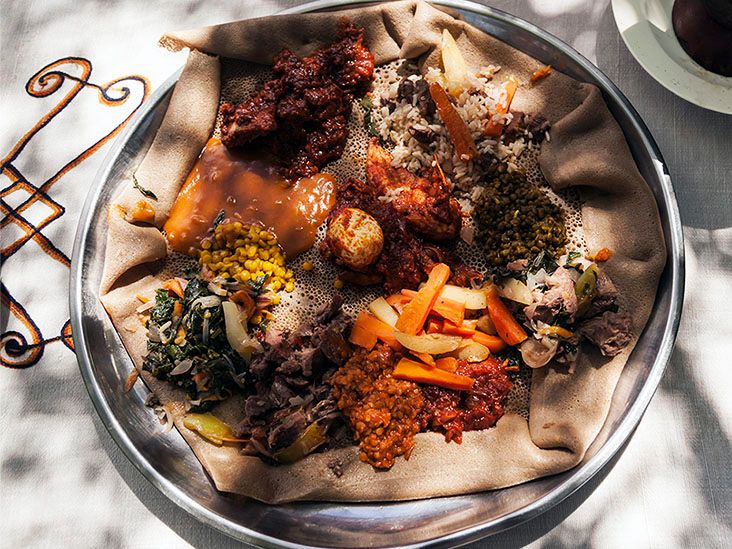Crohn’s disease is a chronic inflammatory disease that affects the digestive system, causing symptoms such as diarrhea and abdominal pain. Doctors may recommend dietary changes to help reduce symptoms.
In some cases, a healthcare professional
This article presents ideas for a potential meal plan for someone with Crohn’s disease, offering breakfast, lunch, and dinner options for 7 days. It also discusses meal planning, preparation tips, and when to speak with a doctor.
IBD resources
Visit our dedicated hub for more research-backed information and in-depth resources on inflammatory bowel disease (IBD).

Researchers of a 2020 review investigated different diets to determine whether they may help relieve Crohn’s disease symptoms. The diets included:
The researchers noted differing results but found that, overall, dietary interventions
Additionally, different types of food and diets may affect each person with Crohn’s disease differently. For example, some individuals may find that certain foods
The next sections suggest some examples of foods to include in a meal plan for Crohn’s disease. However, a person may wish to create their own meal plan, depending on which ingredients and meals are suitable for them.
Nutrition resources
For more science-backed resources on nutrition, visit our dedicated hub.
According to an
The following meal suggestions incorporate some of the foods in this diet:
- Breakfast: Oatmeal with soy milk and cinnamon.
- Lunch: Soft steamed zucchini, green beans, and butternut squash with tofu and tamari.
- Dinner: Fish pie made with white and oily fish and mashed potatoes.
Research suggests that adhering to the Mediterranean diet is linked with higher quality of life and lower disease activity for people with Crohn’s disease. The Mediterranean diet
The following meals include these types of foods:
- Breakfast: Pureed chia pudding made with chia seeds and coconut milk, topped with sliced banana.
- Lunch: Mashed avocado, tomato (removing the seeds if necessary), and olive oil on oatcakes, with a handful of walnuts.
- Dinner: Salmon, steamed chopped greens (removing any bulky stems), and mashed sweet potatoes.
Research suggests the low FODMAP diet
The following foods are low FODMAP:
- Breakfast: Egg and potato frittata, or sliced kiwifruit.
- Lunch: Quinoa salad using soft-boiled quinoa (rinse thoroughly before boiling), cucumber, tomatoes, green bell peppers, and cubed firm tofu.
- Dinner: Chicken with bok choy, carrots, and eggplant (stir fry or steam), with coconut yogurt and diced pineapple for dessert.
The Crohn’s and Colitis Foundation (CCF) suggests that people with Crohn’s disease can try increasing their intake of foods containing omega-3 fatty acids to help decrease inflammation.
The following meals include plant-based and oily fish sources of these beneficial fats:
The following meals include prebiotic and probiotic food sources:
- Breakfast: Greek yogurt with cooked oats, mashed banana or applesauce, and walnut butter.
- Lunch: Tofu marinated in miso with steamed bok choy, carrots, and brown rice.
- Dinner: Chicken stir-fried in tamari with steamed sweet potato, sauerkraut, and green beans.
According to a
A person may wish to try the following plant-based meals:
- Breakfast: Oatmeal with applesauce, cinnamon, and soy yogurt.
- Lunch: Miso soup with bok choy, carrots, and tofu, with a slice of sourdough bread.
- Dinner: Red lentil dahl with brown rice, steamed green beans, and steamed chopped greens.
Some dietary approaches for Crohn’s disease
The following meals use alternatives to wheat and gluten:
The CCF suggests people can prepare and plan meals by:
- Making sure to include plenty of fluids, such as water, in the diet.
- Planning a few quick and easy meals that do not require much preparation or cooking for days when a person feels low on energy.
- Preparing meals in advance — for example, chopping vegetables to store in the refrigerator or freezing meals to eat at a later date.
- Keeping the cupboards well-stocked with foods that do not trigger Crohn’s disease symptoms. These foods may vary between individuals.
- Planning ahead for social gatherings where a person may be eating outside their home. This may include reviewing menus in advance, making others aware of dietary requirements, or bringing food from home.
The diet that someone requires
A doctor may be able to recommend a dietitian who can help a person plan their meals and suggest foods that do not aggravate their condition.
If a person with Crohn’s disease is experiencing new or persistent symptoms, they should speak with a doctor who can help with the appropriate treatment.
Research suggests that certain dietary approaches may reduce inflammation and help relieve Crohn’s disease symptoms. These include low FODMAP and Mediterranean diets.
Different types of food and diets may affect each person with Crohn’s disease differently. People can consult a qualified health professional to help them plan a nutritious diet that does not trigger their symptoms.

